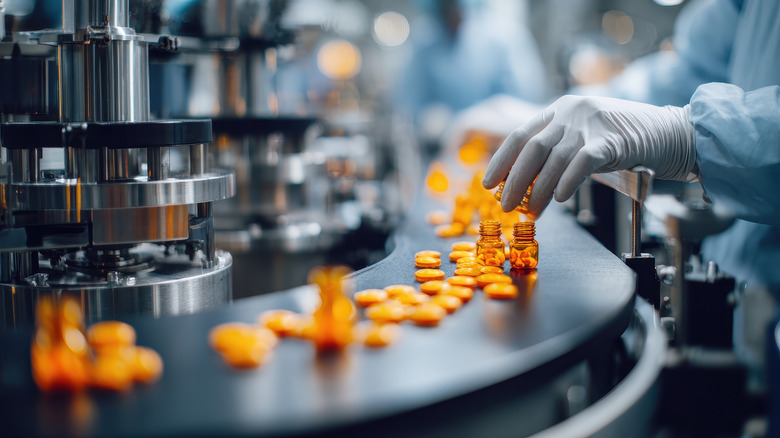How The Trump Administration's Pharmaceutical Tariff Plan May Affect You
You've probably seen both praise and criticism of President Donald Trump's new tariffs while scrolling through your feeds. On top of higher grocery bills from inflation, you may have already noticed about a 10% jump in prices on some imported products. Goods from Brazil and India face a 50% hike, while products from China have a 30% tariff.
Now, Trump is turning his attention to products that are already outrageously expensive for people in the United States: medications. Not all prescriptions are made in the U.S., and starting October 1, a 100% tariff will apply to brand-name drugs brought in from overseas. Generic drugs, which aren't different from the name brand as far as their active ingredients, won't be affected.
That means if you take a brand-name medication that doesn't have a presence in the United States, your costs could go up. Some drugs, like Ozempic or Wegovy, are made by Novo Nordisk, a Danish company. But because Novo Nordisk already has two facilities in North Carolina and is building another, it is exempt from the tariff. Trump has said companies that have broken ground on U.S. plants won't be subject to the new tariff.
Additionally, Trump's existing 15% tariff on products made in the European Union also includes pharmaceuticals, so drugs imported from there won't see the 100% tariff. However, if your medication is made in countries like China or India, and the manufacturer hasn't started building in the U.S., you're more likely to see a price increase.
How the tariffs may affect global drugmakers
Most of the biggest drug companies like Johnson & Johnson, Merck, Pfizer, Eli Lilly, and AbbVie are based in the United States, so they won't be hit by the new tariff. European companies such as AstraZeneca, GlaxoSmithKline, and Bayer already have operations in the U.S. as well. Some drugs, like Botox and Keytruda, are produced in Ireland, but it's not yet clear if they'll fall under the tariff since the companies themselves are headquartered in the United States.
At first, the new pharmaceutical tariffs seemed like they'd pose a bigger problem for India because the country exports a large number of generic drugs to the U.S. But because generics aren't included in the 100% tariff, they're safe for now. That said, Sun Pharmaceuticals, which makes Ilumya for plaque psoriasis, could be affected since it's manufactured in India. Sun Pharma also produces Odomzo and Unloxcyt for skin cancer, Absorica and Winlevi for acne, and Yonsa for prostate cancer.
China, on the other hand, may not see much impact from the brand-name drug tariffs because it doesn't export many to the U.S. What China does supply, though, are the active ingredients that go into a lot of medications used here (per the Financial Times).

